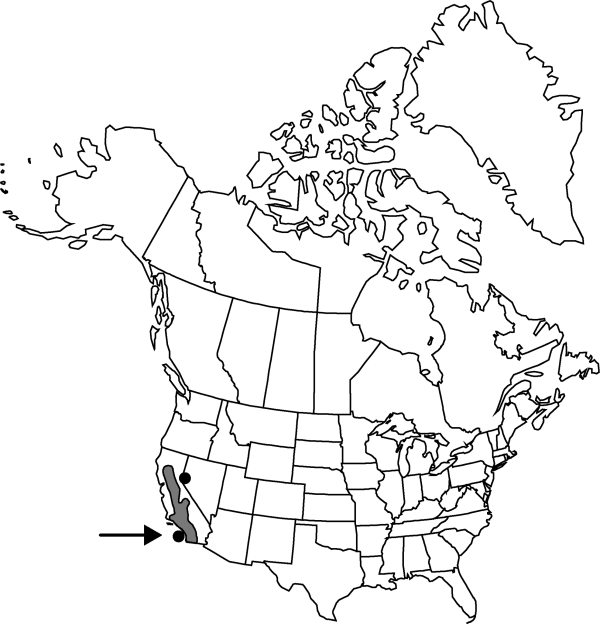familyChenopodiaceae
genusAtriplex
subgenusAtriplex subg. Obione
sectionAtriplex sect. Obione
subsectionAtriplex subsect. Arenariae
speciesAtriplex serenana
Difference between revisions of "Atriplex serenana var. serenana"
Treatment appears in FNA Volume 4. Treatment on page 361.
FNA>Volume Importer |
imported>Volume Importer |
||
| (One intermediate revision by the same user not shown) | |||
| Line 42: | Line 42: | ||
|publication year= | |publication year= | ||
|special status= | |special status= | ||
| − | |source xml=https:// | + | |source xml=https://bitbucket.org/aafc-mbb/fna-data-curation/src/2e0870ddd59836b60bcf96646a41e87ea5a5943a/coarse_grained_fna_xml/V4/V4_705.xml |
|genus=Atriplex | |genus=Atriplex | ||
|subgenus=Atriplex subg. Obione | |subgenus=Atriplex subg. Obione | ||
Latest revision as of 22:00, 5 November 2020
Staminate inflorescences of elongate spikes or panicles, with numerous, beadlike glomerules. Fruiting bracteoles mainly 1-veined, 2.1–3.5 × 1.7–3.5 mm wide.
Phenology: Flowering spring–fall.
Habitat: Alkaline valleys, marshy areas, valley grasslands, coastal sage scrub, sometimes ruderal weed
Elevation: 70-1300 m
Distribution

Calif., Nev., Mexico (Baja California).
Discussion
The most striking feature of Atriplex serenana var. serenana is its usually elongate, paniculate staminate inflorescence with its numerous beadlike glomerules. The taxon in the broad sense is closely allied to the disjunct Atriplex wrightii.
Selected References
None.
Lower Taxa
None.